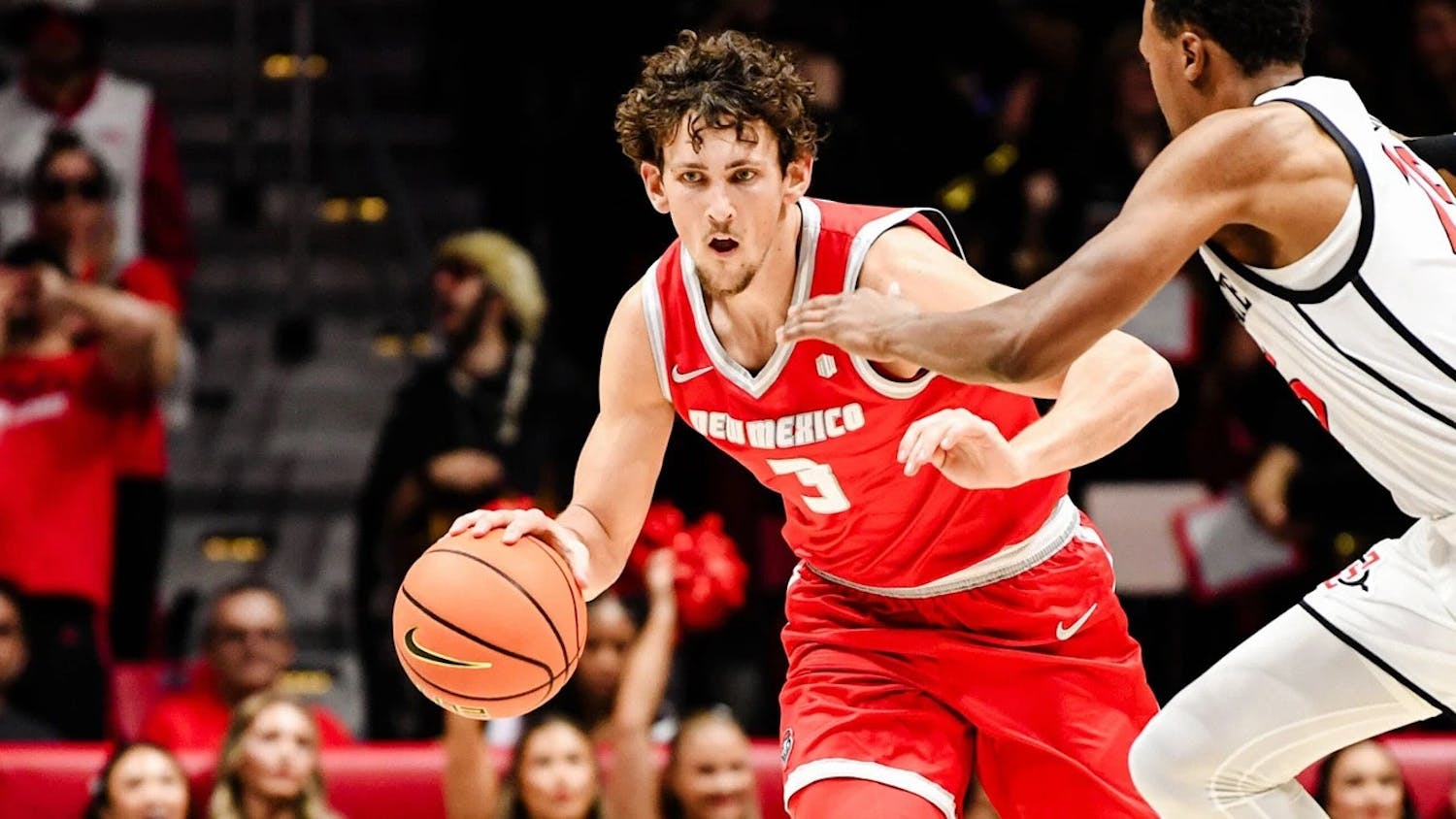Dr. Bruce Smith is an Associate Professor of Psychology at the University of New Mexico, focusing his research on clinical and health psychology. His is interested in researching the study of resilience and the ability to bounce back from stress, including the development of interventions that increase happiness and well-being. This potential for stories is what Smith calls the “hero’s journey," something he outlines when sharing his five favorite movies, and why.
"Just to briefly define the terms for everyone, positive psychology is about using the science of psychology to become our best self and make the most of our lives,” Smith said. “The ‘hero’s journey’ is a set of stages that Joseph Campbell identified that are common to many of our favorite stories and reflect what we go through in becoming our best self.”
“Star Wars: A New Hope” (1977)
“This is a favorite because George Lucas followed the stages of the hero’s journey outlined by Campbell. Luke is confronted with a great adventure that mirrors the choices we have to make and the adventures we have as we try to be true to ourselves and become our best. Turning off the computer and trusting the Force to make the shot that destroys the Death Star represents his full ownership and embrace of all he is capable of.
Another example is Han Solo who begins as a selfish mercenary and eventually chooses to take the risk to use the Millennium Falcon to fire at Darth Vader, which throws him off course enabling Luke to complete his mission.”
“To Kill a Mockingbird” (1962)
“This is a favorite because Atticus Finch is portrayed as the kind of radically unconventional and unsung hero that's desperately needed today. He is a small town, southern, white lawyer who takes on the impossible job of defending a black man unjustly accused of raping a white woman. His courtroom speech is one of the greatest performances of all time— for which Gregory Peck won an Oscar— and the American Film Institute in 2003 voted him the greatest hero of all movies.
"To Kill a Mockingbird" reflects the positive psychology focus on justice, compassion and community life and not just individual happiness. Atticus, his children Gem and especially Scout, and the surprising hero Bo Radley are outstanding examples of the kind of every day heroes that we all need and can be.”
“Hidden Figures” (2016)
“It is not surprising that movie heroes have been dominated by majority culture males who have had the greatest opportunities to write, direct, produce and star in them. I love this movie because it is a wonderful exception— and a true story. It shows how three previously unknown black women supported each other, and against all odds, became real life heroes who helped humankind get to the moon.
Dorothy Vaughan, Mary Jackson and Katherine Gobels Johnson are wonderful examples for each and every college student who are sometimes challenged by people and their own thoughts that tell them they don’t deserve the chance to be successful. Their examples highlight positive psychology’s focus on identifying, developing and using the unique strengths that each of us has, and shows what is possible when we do.”
“Shawshank Redemption” (1994)
Get content from The Daily Lobo delivered to your inbox
“I show ("Shawshank Redemption") in class every semester, I love the scene where prisoner Andy Dufresne risks getting sent to solitary just so he can play beautiful music on the prison loud speaker.
Positive psychology is not for perfect people who are always happy— because they don’t exist. It has increasingly focused on enabling us to confront even the harshest realities we face with the potential to respond with creativity, humor and grace.
The prison is a metaphor for the stress, trauma and tragedy that confronts us all. The story of Andy Dufresne as an example of what happens when we choose to face it, prevail and create something beautiful to give back to others. Life is certainly not always fair, and sometimes we feel locked alone in the dark, but this movie dares to show us we have a choice— to get busy living or get busy dying. Positive psychology and the hero’s journey are about choosing life.”
“Lord of the Rings: The Two Towers” (2002)
“I love this because it may be the best of all cinematic expressions of the J.R.R. Tolkien’s profound and effective attempt to give us a story that can guide us in facing one of our greatest modern challenges. The great temptation is to 'sell our souls' to the sway of greed in focusing on what we can acquire rather than how much we can share and enjoy together. The hobbits show us what we are capable of regarding humility and living happily in community together.
There are many examples of the hero’s journey and positive psychology. Sam Gamgee’s unwavering and profoundly courageous support of Frodo may be positive psychology and humanity as its best. But I would be remiss if I did not also mention the transformation of Gandalf the Grey, to Gandalf the White— after he defeats the great demonic Balrog. There may be fewer more sublime expressions of how the hero’s journey can empower us, that the vision of Gandalf the White riding into battle on his beautiful horse, Shadowfax, to lead the underdog fellowship to victory.
Positive psychology is about becoming the best of what we can be and the hero’s journey involves confronting what scares us, which transforms us and gives us something to share with others.”
Amanda Britt is a freelance reporter for the Daily Lobo. She can be contacted by email at culture@dailylobo.com or on Twitter @AmandaBritt__.






